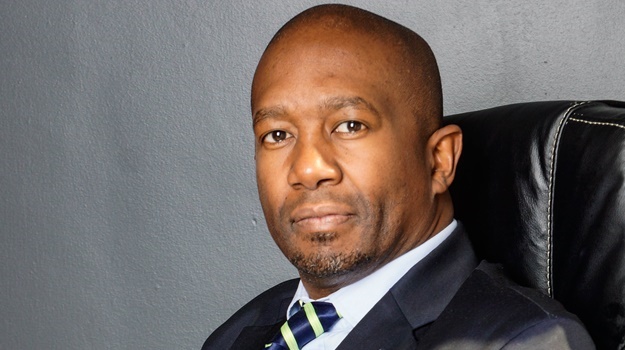


Sisa Ntshona, CEO of SA Tourism (Supplied)
South Africa is the most popular destination for travellers in a post-Covid-19 world, according to Tourlane, an online travel website.
The survey solicited views of international tourists via Tourlane’s newsletter and social networks and counted the number of responses in the company’s four main languages: German, French, Dutch and English. It received some 600 answers, with SA, New Zealand and Canada topping the list of preferred destinations.
Key reasons for wanting to visit South Africa are safari, visiting friends and relatives and scenery.
However, affordability of flight tickets came in as the second-biggest barrier for international tourists to travel to South Africa, a separate survey by South African Tourism has revealed.
International tourists who have visited South Africa in the past three years were surveyed by SA Tourism’s Strategy Insights and Analytics (SIA) team. Almost two-thirds of international travellers surveyed said they are ready to travel immediately after the lifting of international Covid-19 travel restrictions or within a year thereafter.
Who’s going to be travelling?
Millennials (those aged 25-39) and tourists over 65 years old were the most likely have positive travel intentions. The age group between 35 and 54, however, are the most negative about future travel.
That is why SA Tourism CEO Sisa Ntshona foresees that millennial travellers will be at the forefront of tourism recovery in SA.
Not surprisingly, the SAT survey shows that there is a much lower interest in indoor experiences such museums, spa and family entertainment centres. Most of the tourists are looking to engage in outdoor activities, with adequate social distancing protocols and affordable pricing.
The respondents who indicated that they will avoid international travel, said they will prefer destinations in their own country until it is safe enough to cross borders. On the other hand, tourists keen to travel said they are wary of potential price hikes and affordability of travel.
Of respondents in Europe 62% were eager to travel and 29% say they will avoid taking international trips. In the Americas, 51% of the tourists are eager to travel and 28% will avoid travelling.
The survey also showed that travellers without children are most likely to travel to international destinations, while parents are most likely to prefer domestic destinations. Leisure and holiday are main reasons for travel, followed by travel for business or work purposes.
But all that aside, SAT says recovery of the tourism sector can’t wait for a post-Covid world.
Ntshona explains:
“We are obsessed with understanding the evolving needs of tourists. The reality is we are no longer talking about a post-Covid scenario. We accept it is here for some time, so how do we resume our lives despite the virus and how do we consume tourism in a safe way?”
“SA is a long-haul destination, so we have to construct the recovery of our tourism industry first at a domestic and regional level. Safety becomes critical. People are looking for open spaces. Self-catering will be popular and lodges. San Parks should be able to do well.”
Whilse one can’t say when SA will move down to lockdown level 1, the tourism industry can at least ensure it is ready to welcome international tourists back when they are again allowed to travel here again.
“We have all the protocols to keep people safe and can ensure that they are refined to be user-friendly and relevant,” says Ntshona.
Hardest hit
The tourism and hospitality sector has been the hardest hit by the travel restrictions put in place to contain the spread of Covid-19 in SA and abroad. What will make matter worse in the coming months is that government has announced that the Unemployment Insurance Fund’s Temporary Employer/Employee Relief Scheme (TERS) will not pay after June.
Ken and Meg Fargher, the co-owners of Budmarsh Country Lodge in the Magaliesberg owe their creditors R600 000, Eskom is threatening to cut off their electricity supply and they’ve had to use their personal savings to pay workers’ salaries in the past three months.
“We have no cash. There is no income,” said Meg on Wednesday, during a webinar in which players in the tourism and hospitality sector narrated their struggle of living without income since the lockdown began 97 days ago.
William van der Riet says for Drakensberg-based Cathedral Peak Hotel, which says it may not survive Covid-19 if it doesn’t get business interruption insurance pay-out, jobs of 200 staff members are on the line. The dream of passing over to his son the hotel that his father built from scratch could be dead in the water now.
But it’s not just about the dream that could die. On the financial front, the hotel is battling to fund its overheads which range from R800 000 to R1 million a month.
The CEO of the Tourism Business Council of South Africa (TBCSA), Tshifhiwa Tshivhengwa said the industry has been compliant with all lockdown regulations but because that has only led to it getting the short end of the stick, he is starting to admire how the minibus taxi industry pushed back for its survival.
He said the industry is now locked in a corner and it may take drastic actions for survival purposes because “something has to give”.
“We now know that the UIF TERS programme is coming to an end. There won’t be any UIF payments for employees. There is no relief for business from the insurance companies. The travel between provinces is prohibited.
“So, what do you expect us to do as a tourism sector?” asked Tshivhengwa.

